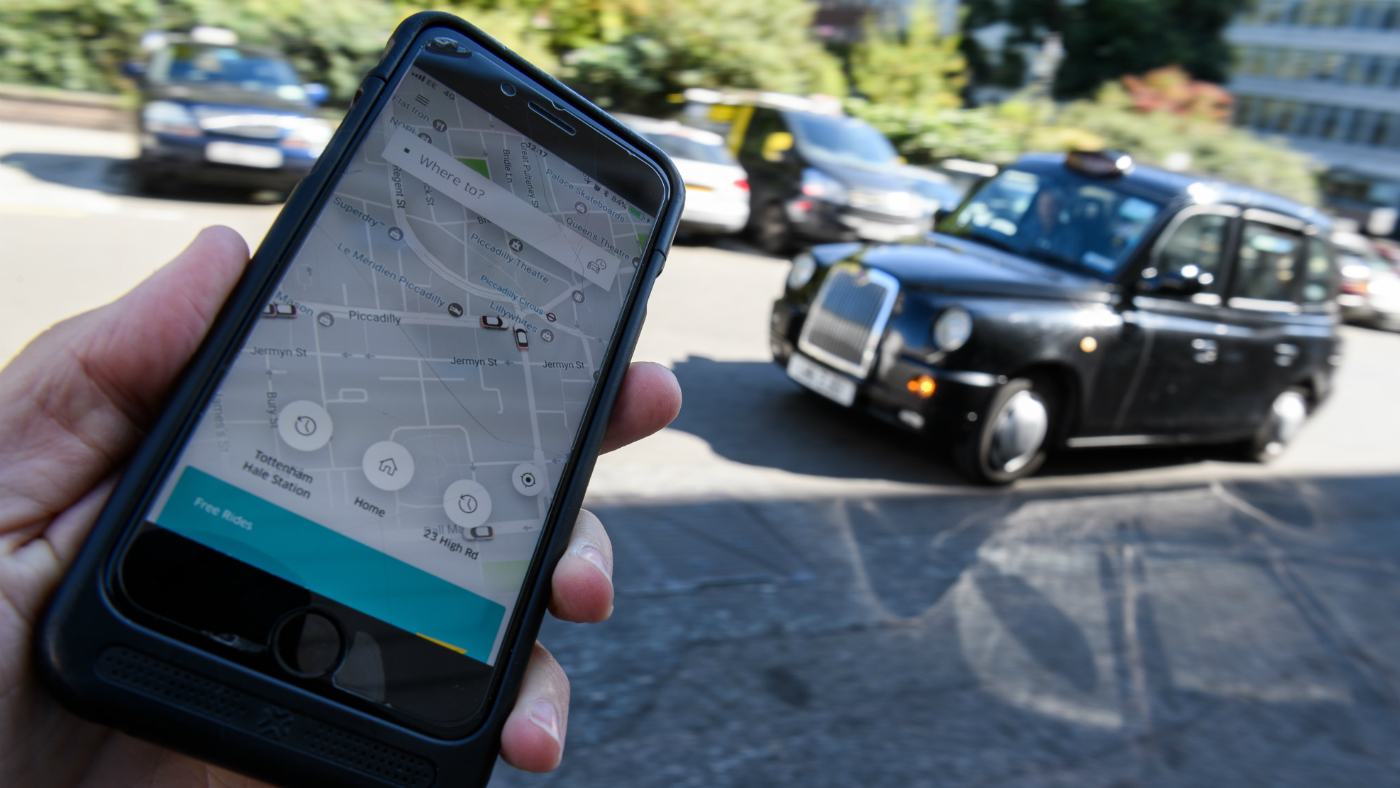
- Select a language for the TTS:
- UK English Female
- UK English Male
- US English Female
- US English Male
- Australian Female
- Australian Male
- Language selected: (auto detect) - EN
Play all audios:
Uber has begun a legal battle to secure its right to operate in London, nine months after Transport for London (TfL) refused to renew the firm’s licence. The hearing at Westminster
Magistrates’ Court, which is expected to last for several days, will determine the taxi app’s future in the UK. WHY DID UBER LOSE ITS LICENCE? SUBSCRIBE TO THE WEEK Escape your echo chamber.
Get the facts behind the news, plus analysis from multiple perspectives. SUBSCRIBE & SAVE SIGN UP FOR THE WEEK'S FREE NEWSLETTERS From our morning news briefing to a weekly Good
News Newsletter, get the best of The Week delivered directly to your inbox. From our morning news briefing to a weekly Good News Newsletter, get the best of The Week delivered directly to
your inbox. TfL announced in September 2017 that it would not be renewing Uber’s operating licence, explaining its reasons for the decision in a 21-page letter. Despite the decision, the
platform has been allowed to continue operating as normal while it pursues a legal appeal. Major issues highlighted by TfL include passenger safety, working conditions for the firm’s growing
army of self-employed drivers, and a lack of transparency about how the platform operates. Speaking in court today, representatives for the app “conceded a string of failings”, ITV News
reports. However, they argued that the company has since made “wholesale” reforms to address the concerns and is now in “fit and proper” condition to have its operating licence restored. For
instance, Uber now reports criminal complaints regarding its service directly to the police. “Previously it had logged criminal complaints with Transport for London, which caused delays,”
says the BBC. WHAT IS AT STAKE? Besides the obvious implications for London’s 3.5 million Uber users and 40,000 drivers, “the case has big ramifications because London basically represents
Uber's entire business in the UK”, says Business Insider. The ride-hailing app currently operates in more than 40 UK towns and cities, including Birmingham, Glasgow, Leicester and
Sheffield, but losing its massive London user base would almost certainly prompt a major rethink about the feasibility of remaining in the UK. In a sign of its eagerness to avoid such a
scenario, Uber has suggested that TfL could agree to issue the company an 18-month licence rather than the usual five-year permit. If the court rejects its appeal, the company could turn to
higher courts, a process that London Mayor Sadiq Khan has said could take years. Explore More TfL In Brief






